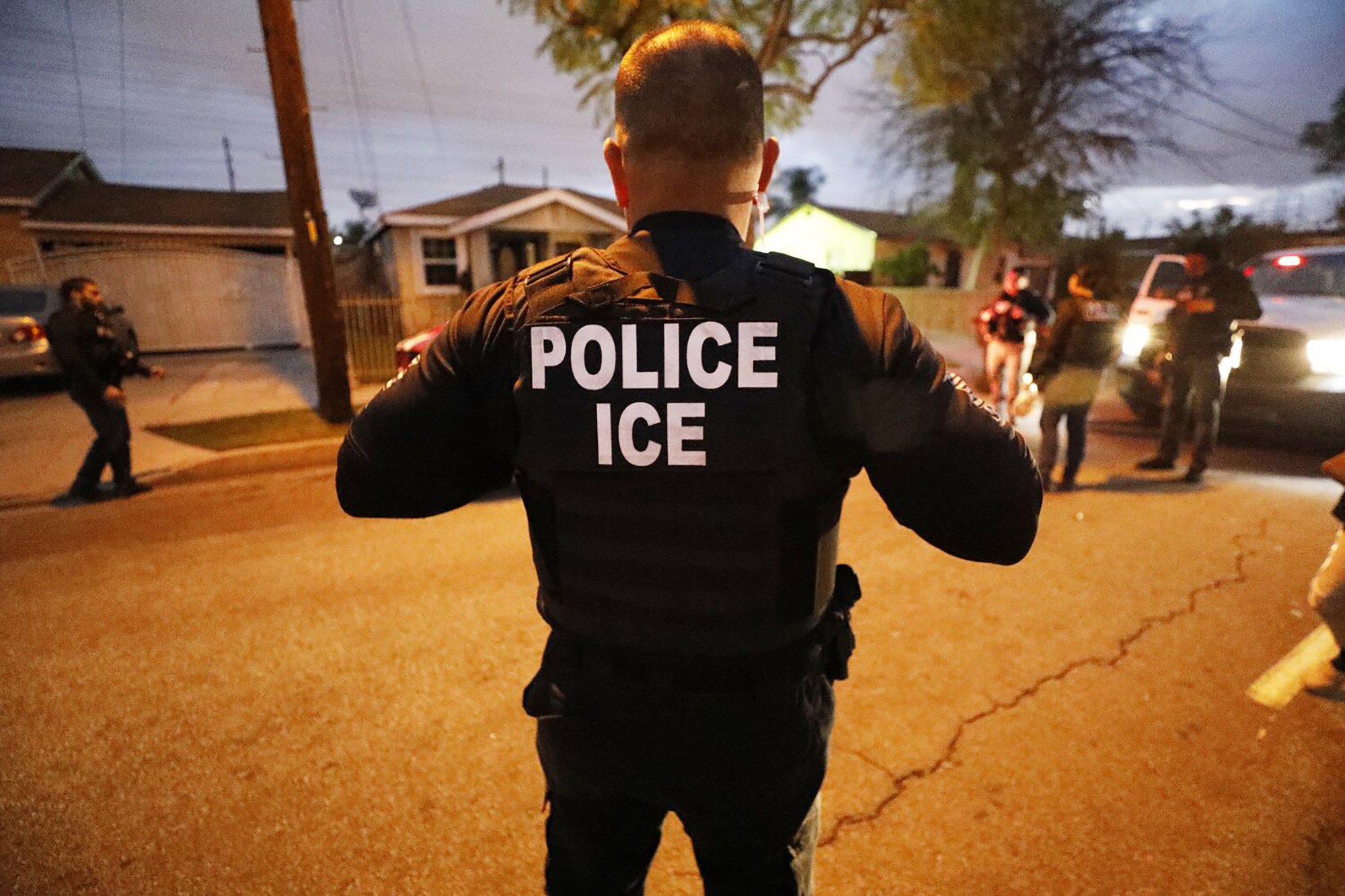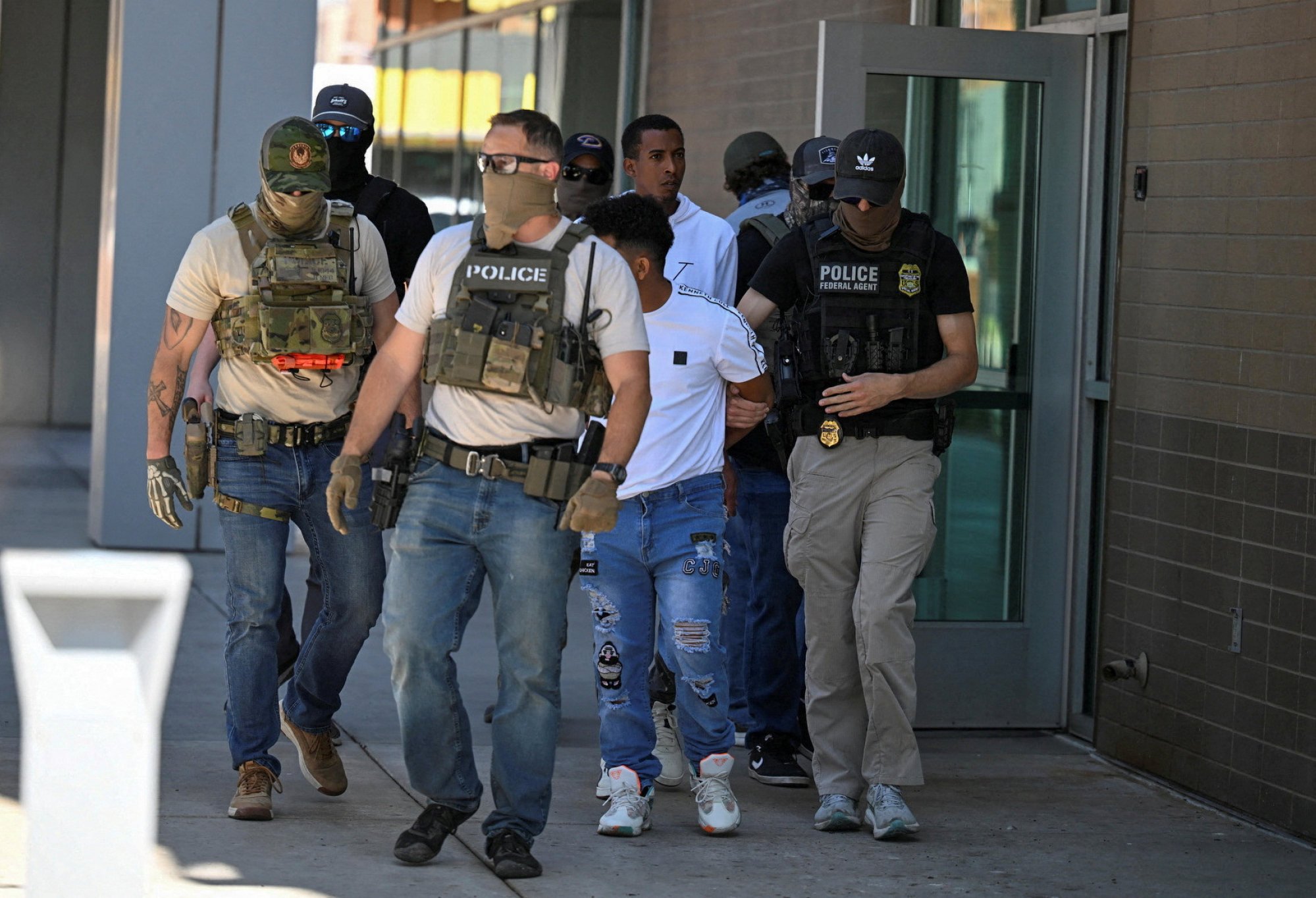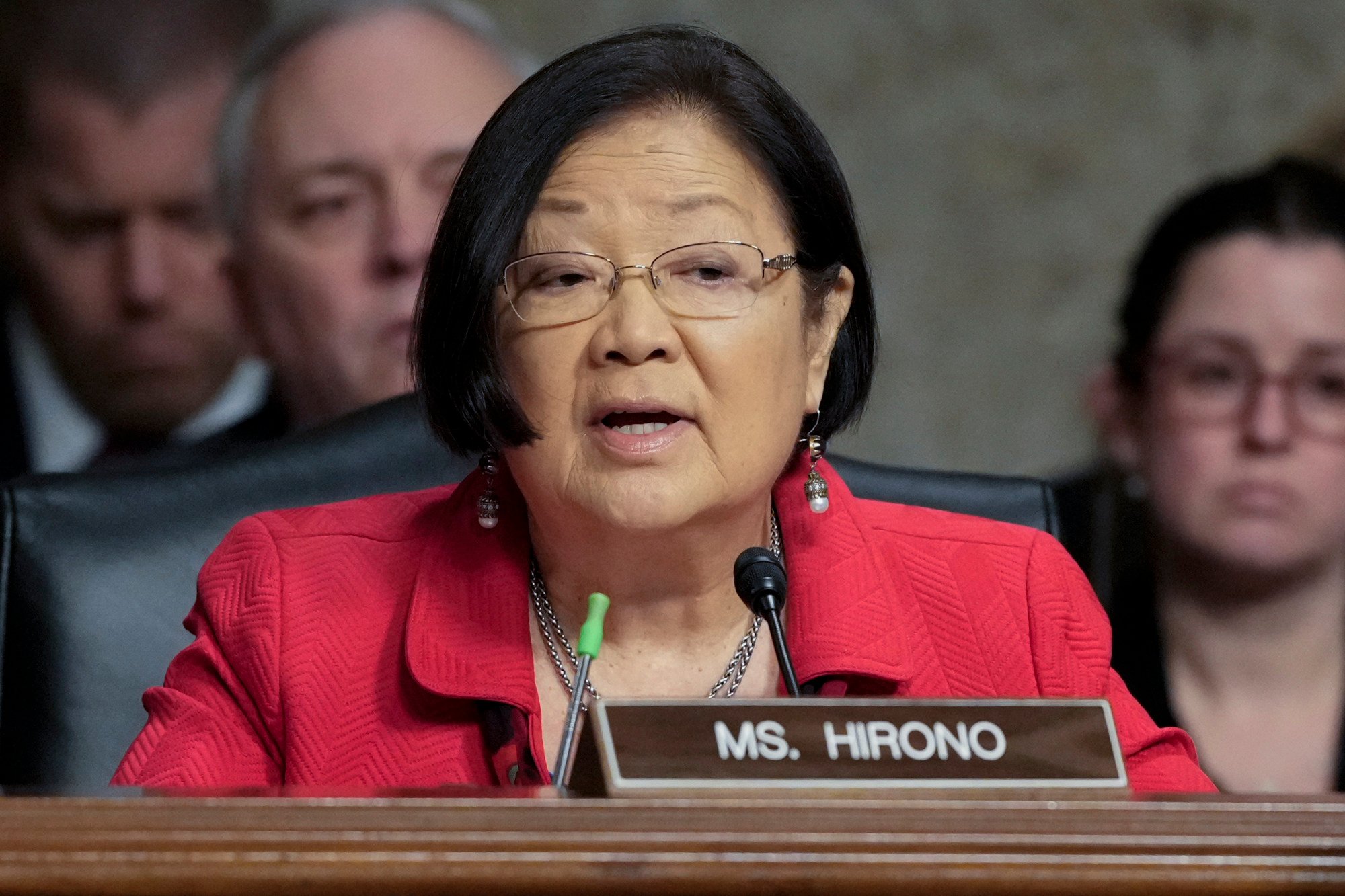Armed ICE raid on Filipino teachers in Hawaii decried as ‘abuse of power’ by US senators
The raid, which witnesses described as ‘traumatic’, lasted more than 45 minutes and ended without arrests

A dawn raid by armed immigration agents on the home of Filipino teachers legally working in Hawaii has sparked outrage among migrant advocates and US lawmakers, who say the incident exemplifies the increasingly aggressive and indiscriminate enforcement tactics used by US President Donald Trump’s administration.
US Immigration and Customs Enforcement (ICE) agents detained 12 Filipino educators from their residence on the island of Maui on May 6. All had been recruited under the J-1 non-immigrant visa programme – a cultural exchange scheme widely used to fill public school teaching posts amid chronic shortages in Hawaii.
The raid, which witnesses described as “traumatic”, lasted more than 45 minutes and ended without arrests.
The operation stunned the local community, with teachers’ unions and migrant workers’ groups condemning what they characterised as heavy-handed enforcement tactics against foreign workers engaged in legally sanctioned employment.
“For Filipinos, this is a chance to seek work abroad to provide for their families back home, but it can also come with challenges of racism and navigating an unfamiliar country,” according to Kami Yamamoto, interim executive director of the Hawaiʻi Workers Centre (HWC), a labour advocacy organisation.
Yamamoto argued the teachers on J-1 visas were deliberately targeted “because there is a concerted effort to crackdown on migrants in the US, regardless of their immigration status”.
“The Trump administration boasts that they’re cracking down on criminals, yet only around 50 per cent of those detained had any sort of criminal charge and many are ‘crimes’ for crossing the border, traffic violations, or other non-violent crimes,” Yamamoto told This Week in Asia.
In a joint statement, HWC and other migrant advocacy groups warned that having legal status in the US was “not a guaranteed protection” – a point they said they had been trying to raise with the Philippine government since before Donald Trump’s inauguration.
“Now these concerns have become reality,” the groups said, citing the arrest of Lewelyn Dixon – a green card holder who migrated to the US nearly five decades ago – and what they described as the “detainment and harassment” of J-1 teachers recruited by Hawaii’s Department of Education.
The statement was co-signed by organisations including the Tanggol Migrante (Defend Migrants) Campaign Network and the National Alliance for Filipino Concerns. It accused US authorities of scapegoating migrant workers regardless of their immigration status, using what it called “antiquated policies” such as the Alien Enemies Act of 1798 to justify arrests and detentions.
At a Hawaii State Teachers Association conference on May 8, a teacher living with her Filipino colleagues shared the ordeal she had witnessed during the raid.
“At 6.15 Tuesday morning, I woke up to agents dressed in black with guns outside of my window pounding on the door, saying to open up and that they had a warrant,” the teacher, a US citizen, said at the news briefing. She requested anonymity to protect her identity and that of her Filipino colleagues.
The teacher said she asked the agents for identification, but claimed they rushed past her and allegedly pointed guns at other colleagues who lived there. The teachers were informed that the agents had a search warrant and were hunting a convicted felon, who was later found to have not lived on the property for more than a year.
“There were teachers [outside the house] who had wet hair. Half the teachers were dressed. Half the teachers were not. There were people with blankets on because they didn’t have the appropriate time to put on clothing,” the teacher told Hawaii media, adding that “about a dozen” federal agents with guns and ICE agents had surrounded their house.

The agents released the teachers after confirming their target was not present.
“The department is aware of an incident involving ICE agents at a private residence housing several of our international teachers on Maui. All of the teachers are safe and accounted for, and we understand the situation was resolved on site with no arrests made,” the Hawaii State Department of Education later said in a statement.
Meanwhile, the Philippine Consulate General in Honolulu confirmed to This Week in Asia that it was in touch with the teachers involved.
“The Philippine Consulate General in Honolulu has reached out to the Filipino J-1 teachers in Maui who were affected by an operation of the US Immigration and Customs Enforcement (ICE). They informed the Consulate that none of them have been arrested and they are safe and in good condition. The Consulate continues to closely monitor developments and remains ready to provide appropriate assistance, if necessary,” the statement said.
However, Hawaii State Teachers Association President Osa Tsui Jnr called the details “quite distressing” as more information on the raid surfaced.
“ICE put out a statement that gave the impression that they just went in, did a little search, and left. What was lacking was any remorse for the trauma that these educators were subjected to. When you were a student and did something really bad, at minimum, you had to apologise. In this case, with educators roused from their beds at gunpoint, there was no public apology for the harm that was done,” he said.

Hawaii senator Mazie Hirono slammed the raid in a speech on the US Senate floor on May 8.
“Despite these teachers being here legally in our country, the teachers were detained by Homeland Security and interrogated before being allowed to go about their business. That is called terrorising people, plain and simple,” she said.
Hirono claimed that instead of supporting teachers, US President Donald Trump “is making it even harder for them to do their jobs and our children will be the ones stuck paying the price.”
Brian Schatz, another Hawaii senator, called the interrogation and efforts to detain Filipino teachers by ICE agents as “outrageous”.
“This is racial profiling and a shameful abuse of power. We are a nation of laws, but the broad ICE raids this week are clearly designed just to instil fear,” he said in a statement.